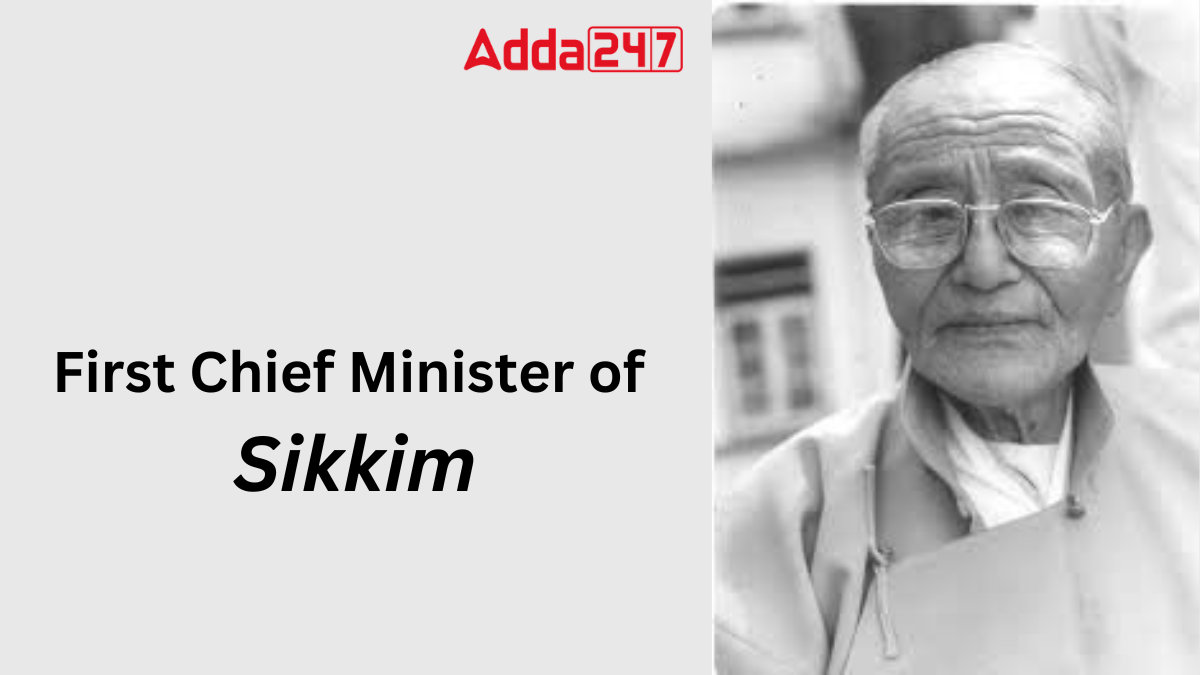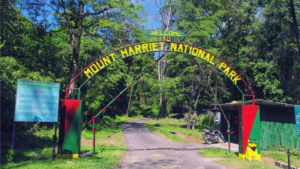Sikkim, nestled in the lap of the Himalayas, boasts a rich tapestry of culture, tradition, and political history. As India’s smallest state, its journey towards democracy and self-governance is marked by significant milestones, with the appointment of its first Chief Minister standing out as a pivotal moment in its narrative.
Who was the First Chief Minister of Sikkim?
Kazi Lhendup Dorjee Khangsarpa, born on October 11, 1904, in Pakyong, East Sikkim, served as the inaugural Chief Minister of Sikkim from May 16, 1975, to August 18, 1979. A pioneering statesman, he played a pivotal role in Sikkim’s integration with India and was instrumental in shaping the state’s transition from monarchy to democracy.
First Chief Minister of Sikkim – Basic Details
| Name: Kazi Lhendup |
| Date of birth: 11th October 1904 |
| Birthplace: Pakyong, East Sikkim, Kingdom of Sikkim |
| Known for: 1st Chief Minister of Sikkim |
| Political Party: Indian National Congress |
| Death: 28th July 2007 |
Inaugural Chief Minister of Sikkim – Early Life and Education
Kazi Lhendup Dorjee, born on October 11, 1904, in Pakyong, East Sikkim, emerged as a prominent figure in Sikkim’s political arena. Descending from the Khangsarpa family, renowned Sikkimese nobility of Bhutia origin, Dorjee’s early life was steeped in Buddhist traditions. At the age of six, he entered the Rumtek monastery, embarking on a journey of spiritual and intellectual growth under the tutelage of his uncle, Tshurfuk Lama Rabden Dorji.
Sikkim’s First Chief Minister – Political Journey
Dorjee’s political journey began with the founding of the Sikkim Praja Mandal in 1945, where he served as its inaugural president. His leadership skills and commitment to the welfare of the people propelled him to prominence, leading to his presidency of the Sikkim State Congress from 1953 to 1958. In 1962, he played a pivotal role in establishing the Sikkim National Congress, advocating for non-communal politics and electoral reforms.
Kazi Lhendup Dorjee as First Chief Minister of Sikkim
The year 1975 marked a historic turning point in Sikkim’s history, as it formally joined the Indian Union. Kazi Lhendup Dorjee emerged as a key figure in this process, spearheading negotiations and diplomatic efforts that culminated in Sikkim’s accession to India. Subsequently, he assumed office as the inaugural Chief Minister of Sikkim, overseeing the state’s transition to democracy and governance.
Sikkim’s First Chief Minister – Contributions and Legacy
Dorjee’s tenure as Chief Minister was marked by significant strides in governance, infrastructure development, and social welfare initiatives. His emphasis on communal harmony and inclusive policies endeared him to the people of Sikkim, earning him widespread admiration and respect. In recognition of his contributions, Dorjee was conferred with the Padma Vibhushan by the Government of India in 2002 and honored with the Sikkim Ratna by the state government in 2004.
First Chief Minister of Sikkim – Personal Life and Demise
Kazi Lhendup Dorjee’s personal life was equally remarkable, with his marriage to Kazini Elisa Maria, a Belgian aristocrat who embraced Buddhism and supported his endeavors. Dorjee passed away on July 28, 2007, at the age of 102, leaving behind a legacy of statesmanship and service to the people of Sikkim. His funeral, held at the Rumtek Monastery, was attended by dignitaries and admirers, underscoring the profound impact of his leadership on Sikkim’s trajectory.










 In Which State/ Union Territory is Mount...
In Which State/ Union Territory is Mount...
 List of Countries Starting with the Lett...
List of Countries Starting with the Lett...
 Top-10 Countries with the Highest Number...
Top-10 Countries with the Highest Number...

